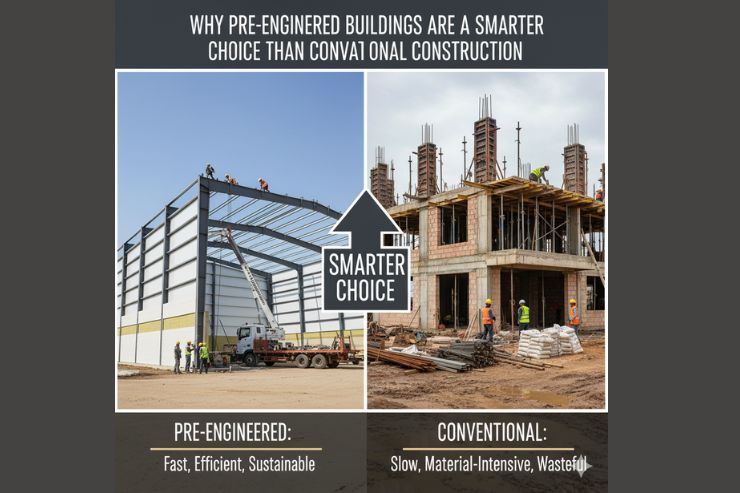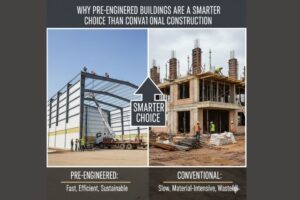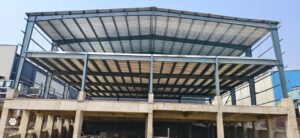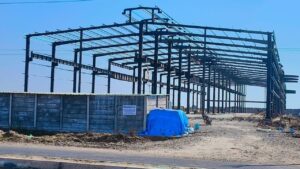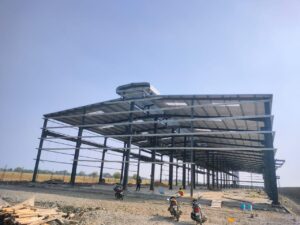For business owners planning new construction projects, choosing the right building solution is a critical decision. Traditional construction methods like Reinforced Cement Concrete (RCC) structures often involve higher costs, longer project timelines, and limited flexibility.
In contrast, Pre-Engineered Buildings (PEBs) have emerged as a modern, efficient, and cost-effective alternative. With advantages in cost, speed, durability, and sustainability, PEBs are transforming the way businesses approach infrastructure.
This blog explores why business owners should invest in pre-engineered buildings (PEBs) and how they can provide long-term benefits.
Table of Contents
ToggleWhy Business Owners Should Invest in PEBs
1. Cost-Effectiveness: Save More on Construction
One of the biggest reasons business owners prefer PEBs is cost savings. Since the building components are fabricated in factories with minimal material waste and delivered ready for assembly, overall costs are much lower.
- Reduced material wastage: Optimized design and fabrication cut down excess use of steel and concrete.
- Lower labor costs: Fewer workers are required for on-site construction.
- Affordable compared to RCC: A PEB project can be 20–30% cheaper than conventional construction.
For small and medium-sized businesses, these savings can free up capital for other growth initiatives.
2. Rapid Construction: Faster Time-to-Market
Time is money in business, and PEBs save both. Unlike conventional construction, where each stage follows the other, PEBs allow parallel processing.
- Factory fabrication happens at the same time as site preparation, reducing delays.
- Pre-manufactured components are quickly assembled on-site like a modular system.
- PEBs can reduce construction timelines by up to 50%.
For example, a 10,000 sq. ft. warehouse that may take 8–12 months using RCC can be completed in just 3–4 months using PEBs. Faster completion means quicker occupancy, faster revenue generation, and less downtime.
3. Design Flexibility & Customization
Every business has unique infrastructure needs. Whether you need a spacious warehouse, a retail outlet, or a specialized cold storage facility, PEBs provide unmatched design flexibility.
- Customizable layouts for size, shape, and architecture.
- Easy to accommodate future expansions or modifications.
- Suitable for both aesthetic designs and functional layouts.
For growing businesses, this adaptability is a major advantage. You can start small and expand as your needs increase without having to rebuild.
4. Durability & Low Maintenance
PEBs are engineered with high-strength steel and advanced coatings, making them highly durable. They can withstand:
- Harsh weather conditions
- Strong winds
- Seismic activity
A well-maintained PEB can last 50+ years. Additionally, because of corrosion-resistant materials, maintenance costs are significantly lower than traditional buildings.
For business owners, this translates into long-term reliability and lower operational costs.
5. Energy Efficiency & Sustainability
In today’s world, businesses are focusing on reducing their carbon footprint. PEBs are a great choice for sustainability and energy efficiency.
- Can be designed with thermal insulation to reduce energy bills.
- Use energy-efficient roofing and wall systems.
- Steel is recyclable, making the building eco-friendly.
- Reduced construction waste due to factory-controlled processes.
With increasing global emphasis on green buildings, investing in PEBs also boosts a company’s reputation as an environmentally conscious business.
Also Read – How a Trusted PEB Company Supports Industrial Infrastructure in the Make in India Era
Key Applications of PEBs for Businesses
PEBs are highly versatile and can be applied across industries.
- Industrial Facilities: Warehouses, manufacturing plants, assembly units, and workshops.
- Commercial Spaces: Showrooms, supermarkets, office complexes, and service centers.
- Specialized Structures: Aircraft hangars, cold storage units, and logistics hubs.
Their adaptability makes them suitable for businesses of all sizes, from startups to large corporations.
Future of PEBs in Business Infrastructure
With the rise of Make in India, industrialization, and smart cities, demand for PEBs is only going to increase. Experts predict the Indian PEB market will grow at a double-digit CAGR in the coming years.
For business owners, this means investing in PEBs today ensures they are aligned with future trends, industry standards, and sustainability goals.
Also Read – The Future of PEB Companies in India: Opportunities with Make in India & Beyond
Frequently Asked Questions
1. How do PEBs reduce construction costs?
PEBs minimize material wastage, require fewer laborers, and use efficient factory fabrication, making them more affordable than RCC buildings.
2. How long does it take to construct a PEB?
A PEB can be built in half the time of traditional construction. For instance, a medium-sized warehouse can be ready in 3–4 months.
3. Can PEBs be customized for business needs?
Absolutely. PEBs offer flexibility in design, size, and layout, and can be expanded or modified as a business grows.
4. Do PEBs require high maintenance?
No, PEBs are low-maintenance structures due to their corrosion-resistant materials and durable design.
5. Why should business owners prefer PEBs over RCC structures?
PEBs are faster, more cost-effective, flexible, and durable compared to RCC, making them ideal for modern businesses.
6. How do I choose the right PEB manufacturer for my business project?
When selecting a PEB manufacturer, business owners should consider factors such as the company’s industry experience, quality certifications, customization options, past projects, pricing transparency, and after-sales support. A reliable manufacturer ensures timely delivery, durable materials, and designs that align with your business goals.

